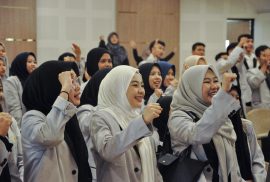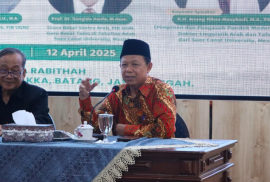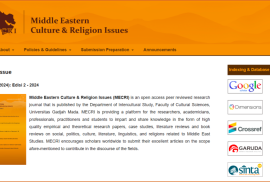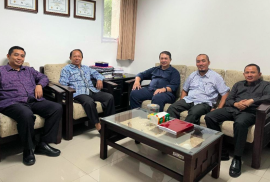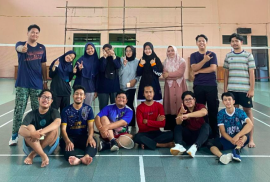Yogyakarta, 7/5/2025 – Faculty of Ushuludin, Adab, and Humanities of UIN Salatiga made a significant visit to the Faculty of Cultural Studies (FIB) at Gadjah Mada University (UGM). The event took place in the Auditorium Margono and was attended by students from various programs, including Quranic Studies, Arabic Literature, and Islamic Theology and Philosophy. The primary aim of this visit was to gain insights into the curriculum and learning methodologies of the Cultural Anthropology and Middle Eastern Studies programs at FIB UGM.
The event commenced with an opening ceremony that set a warm and collaborative tone for the day. The opening remarks highlighted the importance of educational partnerships and the role of civil society in fostering academic exchanges. This aligns with the Sustainable Development Goals (SDGs), particularly in promoting quality education and partnerships for the goals.
Following the opening, a representative from UIN Salatiga, Prof. Dr. Mubasirun, M.Ag., delivered a welcoming speech. He emphasized the significance of collaboration between institutions and the sharing of knowledge, which is essential for enhancing educational quality. His remarks resonated with the audience, underscoring the importance of civil society partnerships in achieving educational objectives.
The Faculty of Cultural Studies at UGM was represented by Prof. Dr. Sangidu, M.Hum., who also provided a welcoming address. He expressed his enthusiasm for the visit and the potential for future collaborations. His speech highlighted the importance of cultural studies in understanding diverse perspectives, which is crucial in today’s globalized world.
The first session of the event focused on Cultural Anthropology, presented by Dr. Elan Lazuardi, M.A. He provided an overview of the program, discussing its curriculum and the methodologies employed in teaching. The session was interactive, with students engaging in a Q&A session, allowing them to delve deeper into the subject matter and clarify their queries.
Following the discussion on Cultural Anthropology, the second session was dedicated to Middle Eastern Studies (KBTT). Dr. Mahmudah, M.Hum., led this session, providing insights into the unique aspects of the program. The students from UIN Salatiga were particularly interested in the comparative studies and cultural exchanges that the program offers, which are vital for understanding the complexities of the Middle Eastern region.
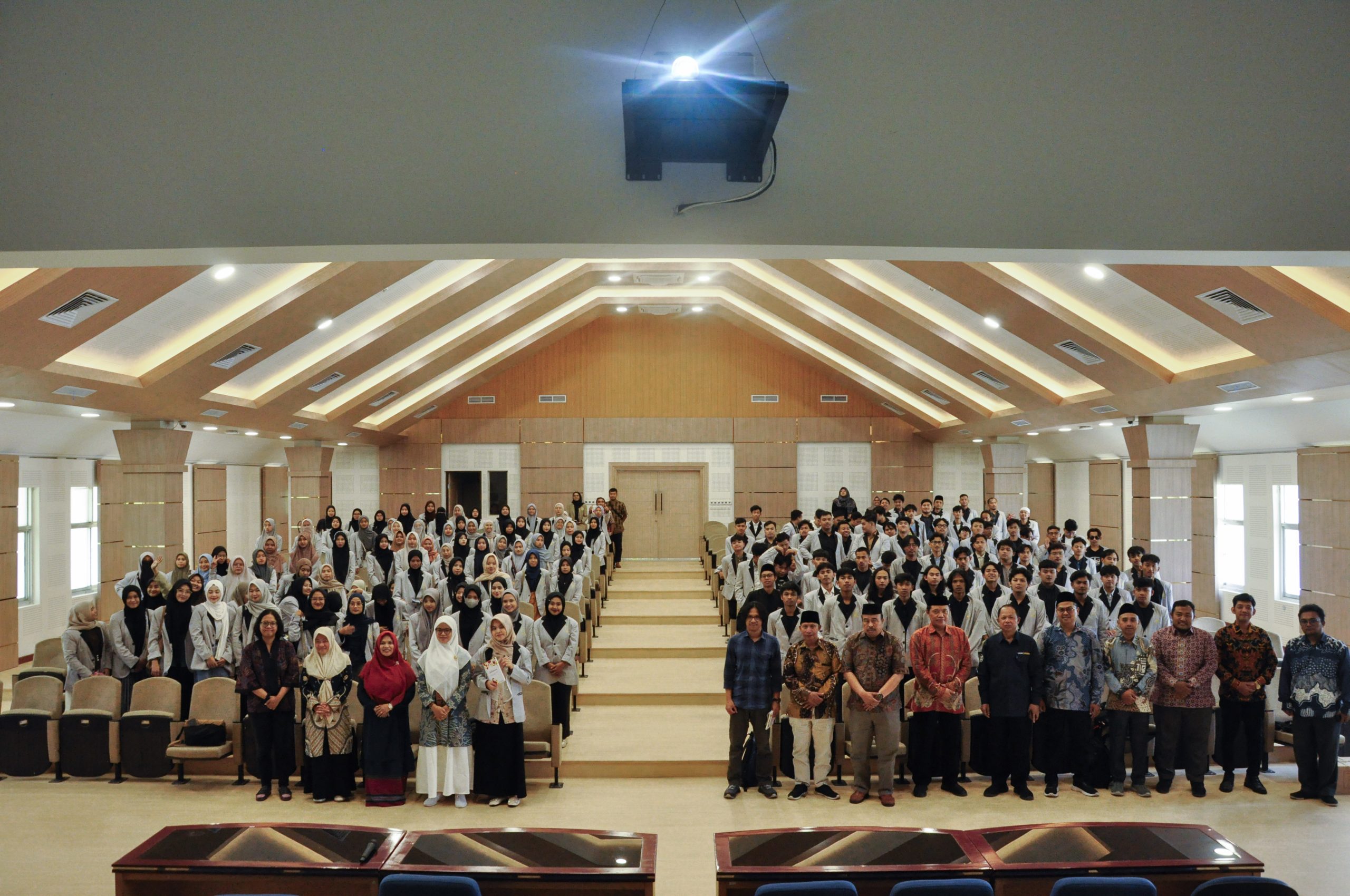
The event fostered an environment of sharing and learning, with students from both institutions exchanging ideas and experiences. This interaction not only enriched their academic knowledge but also strengthened the bonds between the two faculties, paving the way for future collaborations.
As the event drew to a close, the participants expressed their gratitude for the opportunity to learn from one another. The closing remarks emphasized the importance of continued partnerships in education, which is essential for achieving the SDGs related to quality education and fostering inclusive and equitable learning opportunities.
In conclusion, the visit of the Faculty of Ushuludin, Adab, and Humanities of UIN Salatiga to FIB UGM was a successful event that highlighted the importance of educational collaboration. It served as a platform for knowledge exchange and reinforced the commitment of both institutions to work together in promoting quality education and cultural understanding.
[Public Relation Faculty of Cultural Sciences, Bulan Churniati]

